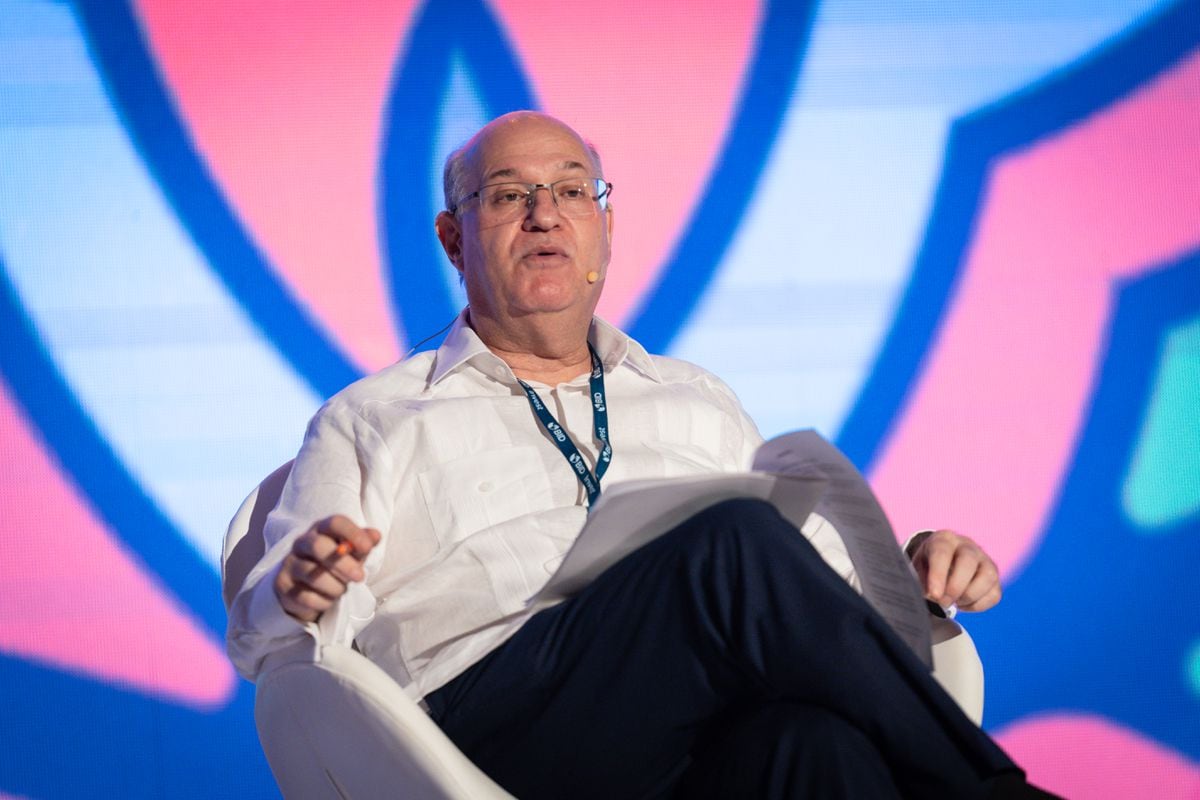Brazilian Ilan Goldfajn was elected president of the Inter-American Development Bank (IDB) in November 2022. It was a turbulent time.
His predecessor, Mauricio Claver Carone, had been dismissed following a report that concluded he violated bank policies over his relationship with an employee.
Agency employees reported fear of reprisals in what they came to characterize as a “regime of terror.”
Goldfajn's first task was to pacify the bank, recover normality, build bridges, seek dialogue.
After her, he launched a package of reforms that crystallized this week in the assembly of governors in Punta Cana (Dominican Republic).
The different reforms were approved this Sunday and aim to enhance the scale and impact of what the IDB does to promote the development of Latin America and the Caribbean.
“It is a historic day,” said Goldfajn in the closing session.
There are three simultaneous major reforms.
On the one hand, the new institutional strategy, which is set every seven years and is the IDB's roadmap.
On the other hand, the recapitalization of IDB Invest, the private arm, with a capital increase of 3.5 billion dollars, which more than doubles its current capital and is accompanied by a change in the business model for greater participation by private investors. commercial projects that free up resources to undertake more projects.
Third, an injection of funds and a reform of the IDB Lab, which supports venture capital and entrepreneurship initiatives.
The IDB estimates that the reforms, financial innovations, business model changes and the recapitalization of IDB Invest will increase the bank's lending capacity to the countries of the region by $112 billion in 10 years, as Goldfajn has reiterated. this Sunday.
The new institutional strategy that contemplates internal governance aspects (meritocracy, transparency, evaluation systems, process optimization, diversity...), but also establishes the bank's objectives and priorities.
“It is the structural basis that guides our work, it is a really important document,” says a senior bank official.
It includes a diagnosis of the region, its problems and opportunities, taking into account that it is very heterogeneous.
The countries do have in common a growing social demand for public services and infrastructure, a scarcity of fiscal resources and low economic growth that means that these resources do not grow enough either.
This is what Goldfajn calls “the triple challenge”, to which global challenges are also added.
“We want to increase impact and scale by being very selective,” said Goldfajn.
The document defines three objectives: the social one, which is the core of what the IDB does, and includes the fight against poverty, the development of public goods such as education and health;
energy transition and climate change, including adaptation to increasingly frequent adverse climate phenomena, such as drought in Argentina and Uruguay, fires in Chile, or hurricanes in the Caribbean and Central America, and, thirdly, productivity growth and growth momentum.
The strategy includes aspects such as the promotion of the knowledge accumulated by the organization;
a more selective approach;
the financial mobilization of resources from third parties, with innovations and new instruments, and public-private coordination.
Furthermore, the BIS wants to evolve from working with countries on projects to working on more long-term programs.
“We have to promote a culture of change,” she said.
Recapitalization
Regarding the recapitalization of IDB Invest, the bank's private arm, the board has been empowered to launch the process and open subscription for the expansion.
That $3.5 billion more than doubles the current capital of $3.229 billion.
In addition, it is accompanied by a change in the business model that allows more entry to commercial partners, even throughout the life of the projects, to free up resources and use them for other purposes.
“More important than the capital we receive or do not receive from our shareholders is what we do with that capital.
The key is to attract foreign direct investment and local savings to address the region's development challenges.
That can double or triple the impact,” indicated these days the manager of IDB Invest, James Scriven.
The third reform directly affects IDB Lab, with a more scalable, sustainable business model and where more resources will also enter.
“The complementarity from the IDB Lab is to work directly with ventures, with
startups
and with entrepreneurial capital funds, with the
venture capital
industry to give a different response, testing new technologies, new business models, to the three challenges that the president mentioned: social inequality, climate and productivity,” explained this week Irene Arias, head of IDB Lab. It will be able to invest at least 1.3 billion dollars in ventures with the aim of them becoming companies of a relevant size.
“When you put it together, that is a very relevant turning point,” Goldfajn pointed out these days.
“I think we are going to remember Punta Cana for many years and perhaps even for decades.
The region needs a transformed IDB.
The region is also facing a possible and potential change.
Because of the global situation, because of where we are in the world, for the first time we see that not only Latin America and the Caribbean need the world, but that the world also needs Latin America for the great milestones and the great global challenges,” he added.
“We are in a historic moment for the IDB group and we want this moment to be also historic for the region,” says Goldfajn.
[Breaking news.
There will be an expansion soon]

